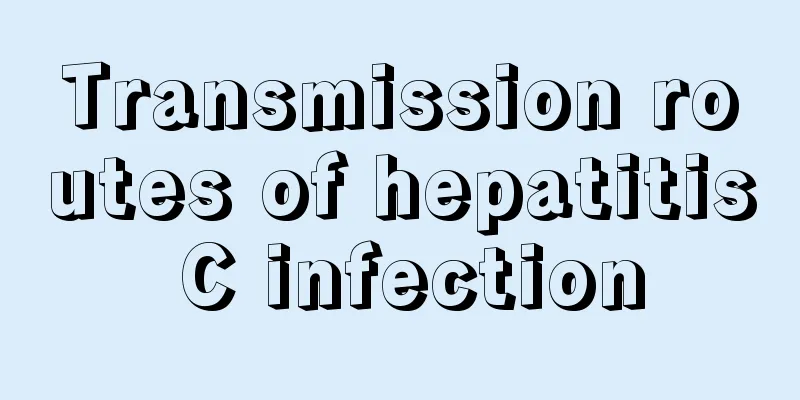Transmission routes of hepatitis C infection

|
Hepatitis C is also a common type of viral hepatitis. It can cause great damage to the liver and is also highly contagious. Generally, there are three ways of transmission of hepatitis C: blood transmission, mother-to-child transmission, and non-blood transfusion transmission. If you want to prevent this disease, you should know more about how it is spread. There is no doubt that hepatitis C is contagious, and hepatitis B and hepatitis C can cause overlapping infections, aggravating the symptoms of hepatitis. In recent years, the incidence of hepatitis C has been increasing year by year. Last year, 120,000 cases were reported, which is six times that of 2003. It can be seen that hepatitis C is highly contagious. In fact, as long as we understand the transmission routes of hepatitis C, the prevention problem can be solved. Generally speaking, there are three ways of transmission of hepatitis C: transmission through blood transfusion and blood products, transmission without blood transfusion, and mother-to-child transmission. However, the hepatitis C virus is mainly transmitted through the blood, and the possibility of infection through general contact in daily life is very small, and there are not many cases of mutual infection between family members. If you pay attention to the following points, you may be able to avoid the spread of hepatitis C within the family. ① Never use the patient's blood to transfuse to others, and patients cannot donate blood voluntarily; ② The patient should use disposable syringes for injections, which should be burned after use. Family members should not share syringes, acupuncture needles, etc.; ③ If the patient is a drug addict (especially one who injects drugs), he should be sent to a drug rehabilitation center for complete drug rehabilitation; ④ Strictly prevent the patient's bleeding from contaminating the exposed wounds or hidden injuries of the skin and mucous membranes of healthy people. The patient's menstrual, epistaxis, hemorrhoidal bleeding and other blood must be thoroughly processed and all pollutants destroyed; ⑤ Be careful of the patient's inapparent blood transmission, such as not sharing toothbrushes and tooth cups, and avoiding gum bleeding and infection; |
<<: Can hepatitis C be completely cured? How to treat it
>>: What should I do if I have diarrhea due to poor stomach? How can I solve it?
Recommend
What's the matter with the white stuff in the urine?
Perhaps some careful friends will find white stuf...
Can sternum cancer be cured?
The treatment effect of sternum cancer depends on...
Can hemorrhoids be inherited?
Medical investigations have found that there is n...
What is Ula grass
The three treasures of the old Northeast are sabl...
How to remove floor tile penetration stains
Ceramic tiles are the most important material for...
Is it better to wash your hair in the morning or at night?
Many people have the habit of taking a shower and...
Can you get pregnant after thyroid cancer surgery? What impact will thyroid cancer surgery have on pregnancy?
Thyroid cancer is a malignant disease. Once it oc...
Beware of skin cancer when playing outdoor golf. How to prevent skin cancer in daily life
Golf is a very healthy outdoor aerobic exercise, ...
What fruit can treat high blood pressure
We know that the most beautiful thing is the suns...
How long does laparoscopic radical gastrectomy take?
Generally speaking, laparoscopic radical gastrect...
What is the most commonly used drug for treating fibroids?
What is the most commonly used drug for the treat...
Is nail polish harmful
Nails have a very important value in today's ...
Recurrence of skin cancer
Skin cancer recurrence is very common in clinical...
What to eat for nasopharyngeal carcinoma radiotherapy? Is it effective?
Diet after radiotherapy for nasopharyngeal cancer...
Is it good to drink instant coffee for a long time?
There are many friends in our lives who, due to w...









